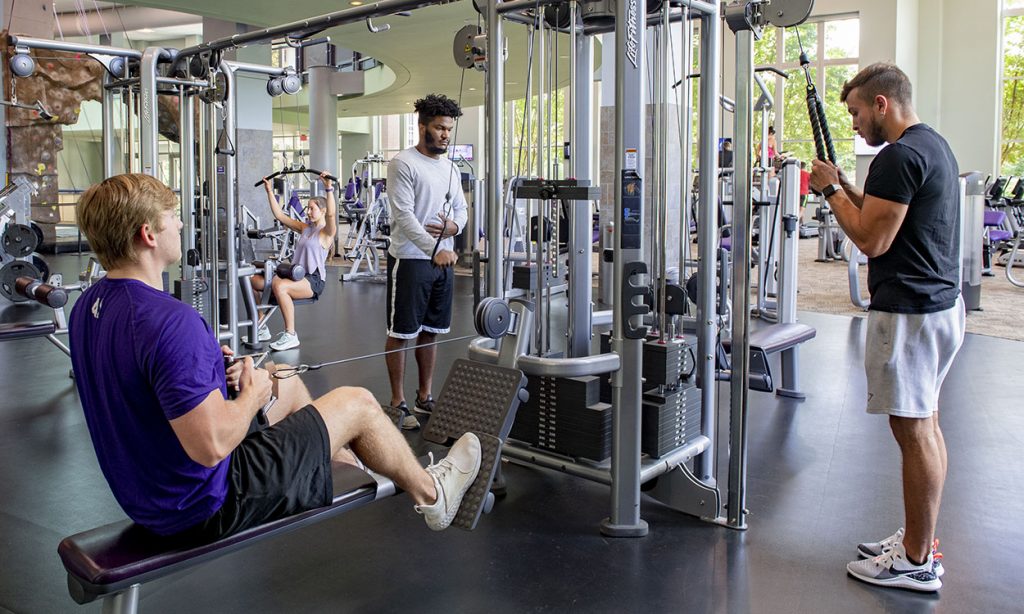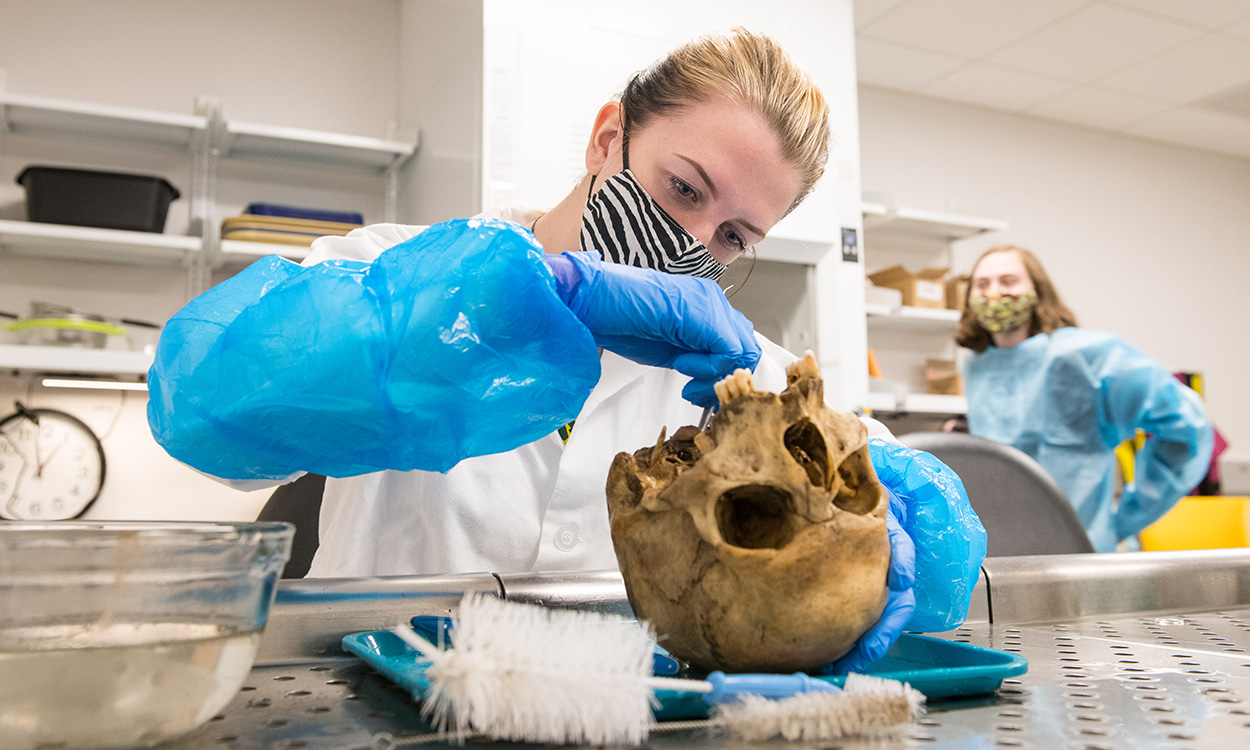Trustees approve 2.4 percent increase in student fees for 2020-21 academic year
The Western Carolina University Board of Trustees endorsed a schedule of fees and rates for the 2020-21 academic year that would increase the cost of mandatory fees paid by all students by 2.4 percent, or $68 per year.
The proposed fee increases, approved by the board at its regular quarterly meeting Friday, Dec. 6, now go to the University of North Carolina Board of Governors for approval. Board member David Rhode, Student Government Association president, cast the lone vote of ‘nay.’

WCU students work out in the Campus Recreation Center. An increase in the student activity fee approved by WCU trustees will be used, in part, to replace equipment in the facility and to make improvements to intramural fields.
The trustees approved a $44 increase in the student activity fee, from $632 to $676 a year, to help fund future facilities projects including renovation projects at A.K. Hinds University Center and improvements to intramural fields, for equipment replacement in the Campus Recreation Center, and for student-focused programming and intentional learning partnerships in the Bardo Fine and Performing Arts Center.
The board also approved a $24 increase in the athletics fee, from $782 to $806 a year, to help cover the cost of facilities needs identified in an athletics department master plan requested by the board earlier this year.
Student fees to support health services, education and technology projects, sustainability efforts and existing debt service will remain unchanged for the coming academic year.
The board also approved an annual increase of $68 (or 3 percent) in the cost of general undergraduate tuition. Because WCU is among the UNC System institutions that are part of the NC Promise tuition plan, which sets the rate of undergraduate tuition for North Carolina residents at $1,000 per year and $5,000 per year for students from out of state, students and parents will not see a change in their tuition bills. If the tuition change is approved by the Board of Governors, the General Assembly will cover the cost differential.
The university’s book rental fee will increase by $8 (or 2.68 percent), from $298 to $306 per year, while residential room rates will go up an average of 2.24 percent beginning with the 2020 fall semester, with annual costs ranging from $5,140 for a standard double-occupancy room to $7,896 for a private room in Balsam and Blue Ridge residence halls. The rate increases will help cover the costs of rising operational expenses and build reserves needed to renovate or replace some of WCU’s older residence halls, said Sam Miller, vice chancellor for student affairs.
The trustees approved changes in meal plans offered to residential and commuter students to decrease a traditional emphasis on “declining balance” plans and increase the number of “exchange meals.” Meal plan rates will range from $749 per year for the commuter “low plan” to $2,514.50 per year for the first-year residential “high plan.”
With the fee and rate schedule approved by the board, WCU’s total cost of attendance in 2020-21, including standard residence hall accommodations and the low option residential meal plan, will be $13,609 per year (fall and spring semesters) for a typical undergraduate student from North Carolina, a 3.27 percent increase (or $431) over the current academic year total annual cost of $13,178.
The action by the trustees comes after a series of meetings held by a campus tuition and fee committee, including two open campus discussions, a meeting of the Student Government Association Senate, and an interactive live video-streamed session hosted on the university’s social media platforms, as well as an online survey that prompted 3,236 responses.
Not surprisingly, the survey showed that responding students were not in favor of most of the proposed increases, Miller said. The students did express mostly positive support for the NC Promise tuition plan, with some graduate students stating they wished that it also applied to their tuition, he said.
In other action, the trustees:
* Endorsed a study to explore the possibility of adding additional sports to the university’s intercollegiate athletics program, with a special focus on wrestling.

